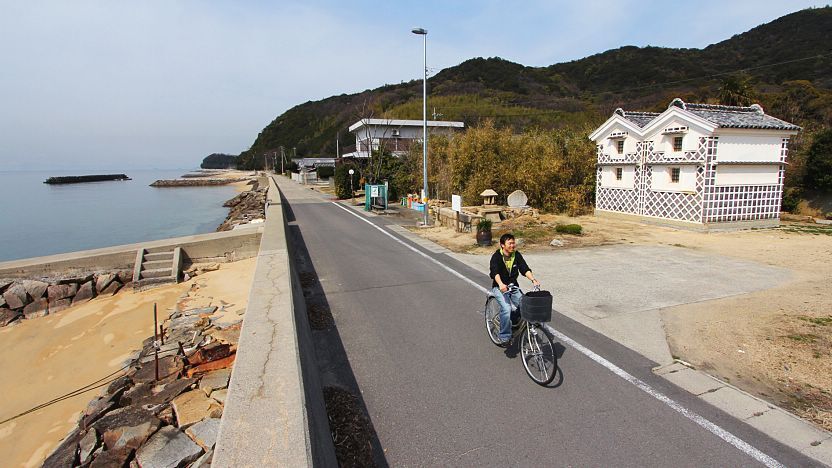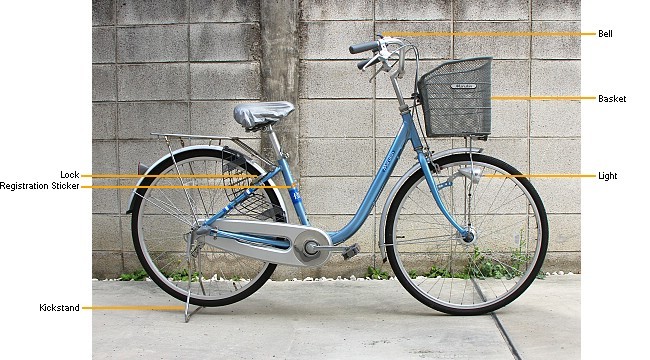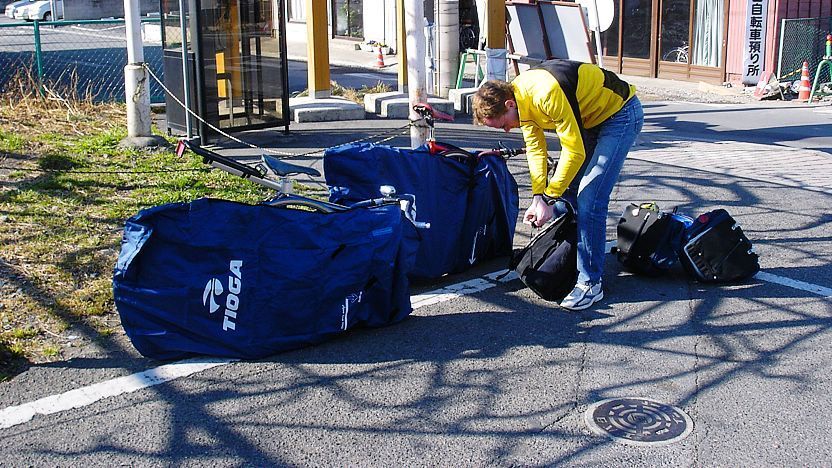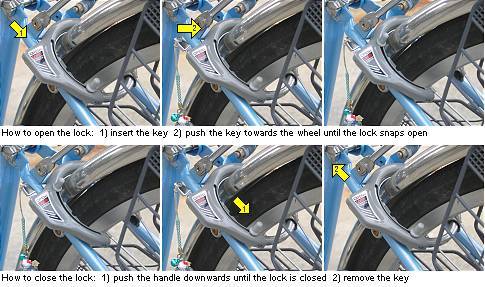Bicycles

Bicycles (自転車, jitensha) are widely used in Japan by people of all age groups and social standings. Tourists will find that rental bicycles are available from rental shops in many tourist destinations as a pleasant option for getting around.
Bicycle sharing services have also grown in popularity, but many of these services require a Japanese phone number or do not come with a user-friendly English app, making them difficult or impossible to use for international tourists.
Types of bicycles
The most common bicycle type in Japan and at rental shops are simple bicycles for everyday use, called mamachari ("mom's bicycle"). Mamachari are typically equipped with a basket and/or a child seat, a simple lock, a kickstand and just one gear. Models with multiple gears or electric assistance are also popular. Foldable bicycles, mountain bikes and road racing bicycles are rarely available for rent and vastly outnumbered by the inexpensive mamachari.

Rental bicycles
Rental bicycles are available in many tourist destinations. They can be an inexpensive and convenient way to get around relatively compact cities or towns, where distances between attractions are slightly too far to cover on foot. Rental shops can usually be found at train stations. Some shops require a deposit and/or photo identification for rentals. They might also ask for the address and phone number of your accommodation.
The majority of bicycles available for rental are the typical mamachari. Rental fees are usually 100-300 yen per hour, 400-800 yen for half a day, and 1000-1200 yen for an entire day. Electric-assisted bicycles are also increasingly available for rental usually at slightly higher rates. On rare occasions, road bicycles and mountain bikes are also available. Most shops do not allow overnight rentals. In cycling-friendly areas, some lodgings provide staying guests with bicycles for free, although some also charge a fee.

Bicycle rules and parking
In theory, cyclists are supposed to use the streets and not the sidewalks, except when signs indicate that the sidewalks are for use by both pedestrians and cyclists. In practice, however, many cyclists tend not to follow this rule and use the sidewalks out of convenience. Helmets for cyclists have become mandatory as of April 2023, however, helmet wearing is not being enforced and there are no fines for not wearing one.
In many big cities, there are dedicated bicycle parking areas near railway stations and shopping centers. Here and there you may even find multi-storey parking garages for exclusive use by bicycles. Where there is a lack of designated parking space, do not follow bicycles that are ruthlessly parked even in clearly designated non-parking zones. Illegally parked bicycles may be removed by the local authorities and can only be retrieved by paying a fine. Park instead at a location where your bicycle will obviously not be a hindrance.

Nice places for cycling
Below are a few places in Japan that are particularly attractive for cycling:
Touring bicycles
Many regions of Japan are suitable for long-distance cycling, offering numerous roads with little traffic. The country is abound with nature, and many roads outside of the cities provide views of scenic beauty. However, traffic can be heavy on main roads, especially along coasts and valleys where there is no space for secondary roads. Due to a general lack of cycling lanes, narrow roads and old tunnels can be a hazard to cyclists.
Renting a touring bicycle in Japan is difficult. Therefore, you may consider bringing one from your home country. Some airlines allow bicycles as free check-in luggage. An alternative is to purchase a bicycle in Japan.
Inside Japan, bicycles can be easily and relatively inexpensively sent across the country using the popular takuhaibin delivery services. Many railway companies allow bicycles to be brought onto trains if the front wheel is removed and the entire bicycle placed into a special bag. A small fee may be charged.

Bicycle theft and registration
Bicycle theft is not uncommon in Japan. In order to fight the crime, every bicycle in Japan is supposed to be registered with the police against a small one-time fee. If you buy a new bicycle, the registration process will likely be handled by the store, but if you take over a used one from someone else, you should re-register it under your name at the local police station in order to avoid future misunderstandings.
Most bicycles are equipped with a basic lock (see illustration below on how to use it), but more sturdy locks are required if you are concerned about bicycle theft.

Questions? Ask in our forum.








